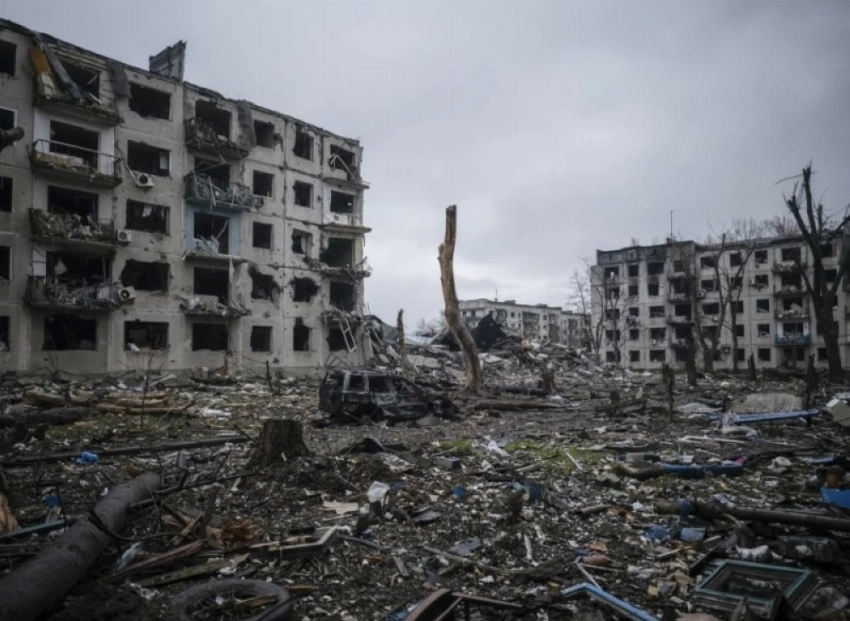أعلن الائتلاف الحاكم في ألمانيا، تخصيص تمويل إضافي بقيمة 3 مليارات يورو لمساعدة أوكرانيا، مما يرفع إلى حد كبير من قيمة المساعدات العسكرية لكييف بعد تراجع الدعم الأمريكي لها.
وأفادت مجلة «بوليتيكو» الأمريكية، اليوم (السبت)، أن المشرعين في الائتلاف الحاكم المكوّن من «التحالف المسيحي»، و«الحزب الاشتراكي الديمقراطي» وافقوا على زيادة المساعدات لأوكرانيا إلى 11.5 مليار يورو، ليبلغ الدعم الألماني لكييف أعلى مستوى له منذ الحرب الروسية الأوكرانية في عام 2022.
إنفاق على المدفعية والطيران المسير
نقلت تقارير إعلامية عن وزارة الدفاع الألمانية أن إنفاق الأموال الإضافية سيتم على المدفعية والطائرات المسيرة والمركبات المدرعة ومنظومتي دفاع جوي من طراز «باتريوت»، مبينة أن ألمانيا هي أكبر مانح للمساعدات العسكرية لأوكرانيا، بعد الولايات المتحدة، لكن مع توقف تدفقات المساعدات الأمريكية إلى أوكرانيا، حاولت الدول الأوروبية تعويض هذا الركود.

وانخفضت المساعدات العسكرية لأوكرانيا إلى حد كبير خلال الصيف، على الرغم من صفقة تسمح للدول الأوروبية الأعضاء في حلف شمال الأطلسي «الناتو»، بالحصول على أسلحة من المخزونات الأمريكية.
وتتوقع مسودة اتفاق الميزانية الإجمالية لألمانيا، إنفاقاً إجمالياً يبلغ نحو 524.5 مليار يورو في عام 2026، بزيادة 4 مليارات يورو عما كان متوقعاً في البداية.
وأقر المشرعون في لجنة الميزانية التابعة للائتلاف الحاكم، ديوناً تزيد على 180 مليار يورو، وهو مستوى أصبح ممكناً بفضل إصلاح تاريخي لقواعد الإنفاق تم تمريره في وقت سابق من العام الحالي، أعفى إلى حد كبير نفقات الدفاع والمساعدات الأوكرانية من قواعد «كبح الديون» في الدستور الألماني.
ولا يزال يتعين أن يوافق المشرعون في البرلمان الاتحادي الألماني «البوندستاج»، على مشروع الميزانية.
تراجع الموارد الأوكرانية
وفي ظل تواصل الحرب في أوكرانيا فإن موارد صندوق الحرب الأوكراني تراجع بشكل متزايد، فيما انخفضت المساعدات العسكرية التي تقدمها الدول الأوروبية إلى كييف بنسبة 57% هذا الصيف مقارنة ببداية العام، بحسب تقرير صادر عن «معهد كيل للاقتصاد العالمي»، ومقره مدينة كيل بشمال ألمانيا.
ويأتي هذا الانخفاض في أعقاب تعليق الرئيس الأمريكي دونالد ترمب، لحزم المساعدات الجديدة لأوكرانيا في وقت سابق من العام الحالي.
وتتحرك المفوضية الأوروبية لاتخاذ قرارات يسمح لها باستخدام الأصول الروسية المجمدة بموجب العقوبات، لتمويل قرض تعويضي بقيمة 140 مليار يورو لأوكرانيا، ولكن الخطة متوقفة بسبب اعتراضات بلجيكية.
The ruling coalition in Germany has announced an additional funding of 3 billion euros to assist Ukraine, significantly increasing the value of military aid to Kyiv following a decline in American support.
According to the American magazine "Politico," today (Saturday), lawmakers in the ruling coalition, composed of the "Christian Democratic Union" and the "Social Democratic Party," have agreed to raise aid to Ukraine to 11.5 billion euros, bringing German support to Kyiv to its highest level since the Russian-Ukrainian war began in 2022.
Spending on Artillery and Drones
Media reports have quoted the German Ministry of Defense stating that the additional funds will be spent on artillery, drones, armored vehicles, and two "Patriot" air defense systems, indicating that Germany is the largest military aid donor to Ukraine after the United States. However, with the halt of American aid flows to Ukraine, European countries have tried to compensate for this stagnation.

Military aid to Ukraine has significantly decreased over the summer, despite a deal allowing NATO member countries to obtain weapons from American stockpiles.
The draft of Germany's overall budget anticipates total spending of about 524.5 billion euros in 2026, an increase of 4 billion euros from what was initially expected.
Lawmakers in the budget committee of the ruling coalition have approved debts exceeding 180 billion euros, a level made possible by a historic reform of spending rules passed earlier this year, which largely exempted defense spending and aid to Ukraine from the "debt brake" rules in the German constitution.
However, the lawmakers in the German federal parliament, the "Bundestag," still need to approve the budget proposal.
Decline in Ukrainian Resources
As the war in Ukraine continues, the resources of the Ukrainian war fund have increasingly diminished, with military aid provided by European countries to Kyiv dropping by 57% this summer compared to the beginning of the year, according to a report from the "Kiel Institute for the World Economy," based in Kiel, northern Germany.
This decline follows the suspension by U.S. President Donald Trump of new aid packages for Ukraine earlier this year.
The European Commission is moving to make decisions that would allow it to use frozen Russian assets under sanctions to finance a compensatory loan of 140 billion euros for Ukraine, but the plan is stalled due to objections from Belgium.


0 تعليق